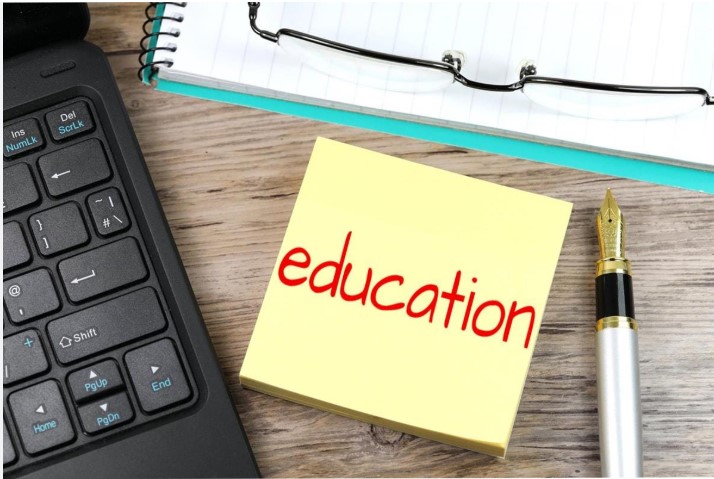Education is definitely one of the most importance topic for personal and social transformation. Education is the foundation of a nation. It helps in building people’s knowledge, intelligence and values. Without education, a society can never progress. Education is not limited to just reading books, it is about shaping people’s thinking, consciousness, mindset, and moral character.
What is Education?
Education is the process of learning and gaining knowledge, skills, values, and habits. It helps people grow, think, solve problems, and make better choices in life.
Education can happen in many ways:
- At school, where teachers help students learn
- At home, through parents or self-learning
- Through life – by experiences, reading, or trying new things
In simple words, education teaches us how to live, work, and grow
tion?
The Role of Education in Personal Growth
Education plays a critical role in the personal development of an individual. It helps people become more confident, informed, and independent. By learning how to read, write, and think critically, individuals can make better decisions and solve problems effectively. Education also teaches values such as discipline, responsibility, respect, and empathy, which are essential for becoming a good citizen.
Moreover, education helps individuals discover their interests and talents. A student may find a passion for science, a skill in writing, or a talent for art. These discoveries often guide future careers and personal fulfillment. Without education, many people would never uncover their true potential.
Education and Economic Growth
One of the biggest impacts of education is on the economy. An educated population is more likely to be employed, earn higher wages, and contribute to economic development. Workers with skills and training are more productive and innovative. They can adapt to new technologies and changing job markets, which is essential in a fast-evolving global economy. Education and economic growth are closely connected. Here’s a simple explanation:
1. Education builds skills
- When people go to school or learn a trade, they gain skills.
- These skills help them get better jobs and earn more money.
2. Skilled workers boost the economy
- When many people are educated, businesses grow faster.
- Workers become more productive and creative.
- This leads to more goods and services, which helps the economy grow.
3. More education = less poverty
- Education helps people break out of poverty.
- With better jobs, people can take care of their families and invest in the future.
4. Innovation and new ideas
- Education encourages people to think, invent, and start businesses.
- New ideas can lead to new industries and technologies.
Simple example:
A country where most people finish high school and college usually has more doctors, engineers, and entrepreneurs. These people help the country earn more money, pay more taxes, and improve life for everyone.
In short:
Education leads to better jobs → better jobs lead to higher incomes → higher incomes grow the economy.
Education Promotes Equality
Education promotes equality by giving everyone the same chance to learn and grow. It helps people from all backgrounds—rich or poor, boys or girls—develop skills, find better jobs, and improve their lives. When people are educated, they understand fairness and respect others, which helps reduce discrimination and inequality in society. In this way, education creates a more equal and fair world for everyone.
The digital age has transformed education in many ways. Technology has made learning However, this also highlights the digital divide. Not all students have access to the internet or electronic devices. Governments and organizations must work to ensure that all children can benefit from digital education, especially in remote and low-income areas.more accessible through online courses, educational apps, and virtual classrooms. Students can now learn at their own pace, from anywhere in the world.
Education Builds Better Societies
Challenges’s a simple paragraph on “Education Builds Better Societies”:
Education builds better societies by teaching people how to live together with respect, kindness, and understanding. It helps reduce crime, improves health, and encourages people to take part in their communities. Educated citizens are more likely to vote, follow laws, and help solve problems. When people learn to think, work, and care for others, society becomes safer, stronger, and more peaceful.
“Education Builds Better Societies“:
Education builds better societies by teaching people how to live together with respect, kindness, and understanding. It helps reduce crime, improves health, and encourages people to take part in their communities. Educated citizens are more likely to vote, follow laws, and help solve problems. When people learn to think, work, and care for others, society becomes safer, stronger, and more peaceful.
The Future of Education
The future of education must be flexible, inclusive, and focused on lifelong learning. As the job market changes, people will need to learn new skills throughout their lives. Education should prepare students not just for exams, but for real-world challenges. Critical thinking, communication, collaboration, and emotional intelligence will be as important as math and science.
Governments, teachers, parents, and communities all have a role to play in shaping the future of education. Investments in education, teacher training, and modern infrastructure are essential. At the same time, we must ensure that education promotes values like kindness, curiosity, and courage.
. It helps people grow, find good jobs, and make smart choices. Education reduces poverty, promotes equality, and builds strong, peaceful societies. When everyone has the chance to learn, the whole world becomes a better place.
